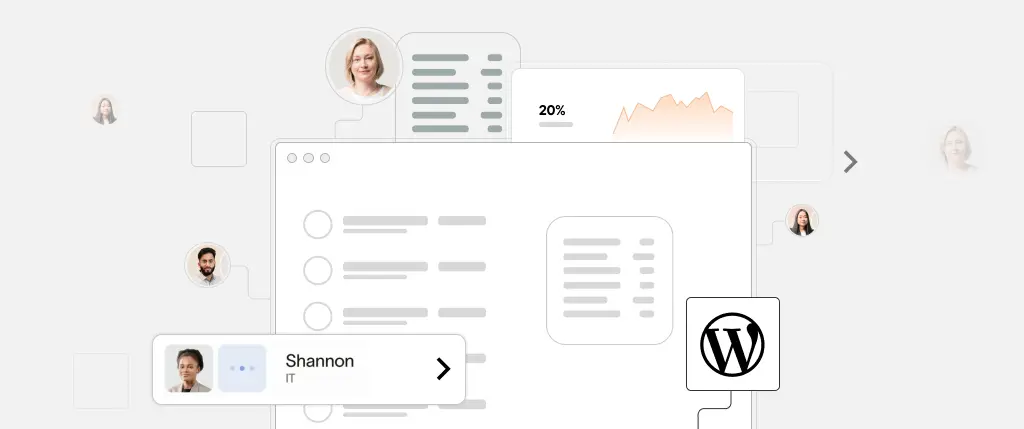Ensuring GDPR compliance for WordPress websites isn’t just about cookie banners or contact forms. While plugins play a role, your web hosting provider is a foundational component in meeting legal data protection obligations. Hosting impacts everything from data storage and encryption to breach notifications and server location—making it a critical piece of your compliance strategy.
In this article, we break down how hosting influences GDPR compliance for WordPress, what to look for in a compliant hosting provider, and the practical steps you can take to protect user data while avoiding costly penalties.
What Is GDPR and Why It Matters for WordPress Hosting
The General Data Protection Regulation (GDPR) is an EU regulation that protects the personal data of residents across the European Union. Any website that collects or processes data from EU citizens—including those built on WordPress—must comply, regardless of where the site is hosted or who operates it.
Key GDPR principles include:
- Transparency: Users must know how and why their data is collected.
- Consent: You need explicit permission before gathering personal information.
- Security: You must implement proper safeguards to prevent unauthorized access.
- User Control: People can request access to, correction of, or deletion of their data.
- Accountability: You must be able to prove you’re protecting personal data effectively.
While many site owners focus on front-end measures (e.g., cookie consent), GDPR compliance for WordPress is also deeply connected to how your web hosting provider handles, stores, and secures personal data behind the scenes.
The Hosting Provider’s Role in GDPR Compliance for WordPress
Your WordPress hosting provider plays a key role in compliance because they:
- Store personal data (in databases, backups, server logs)
- Handle email delivery, caching, and analytics infrastructure
- Enable or restrict access to sensitive data
Key GDPR responsibilities your hosting provider should support:
- Data Processing Agreement (DPA):
A legally binding agreement that outlines how the host processes and protects your user data. - Server Location Transparency:
Data should be stored in the EU or in countries with appropriate data protection safeguards (e.g., using Standard Contractual Clauses). - Encryption & Security:
Hosts must provide SSL/TLS for secure data transmission and encryption at rest for stored data. - Access Logs & Audit Trails:
Your host should offer visibility into who accessed what, when, and why. - Breach Response:
Your host must notify you promptly in case of a data breach so you can meet the GDPR’s 72-hour reporting requirement.
GDPR Hosting Checklist for WordPress Website Owners
Here’s a practical checklist to evaluate whether your host helps you achieve GDPR compliance for WordPress:
| Requirement | Must-Have Hosting Feature |
|---|---|
| ✅ DPA | Clear agreement outlining GDPR compliance responsibilities |
| ✅ Server Location | EU-based or GDPR-compliant third-country data centers |
| ✅ SSL/TLS | Encrypted connections via SSL certificates |
| ✅ Backups | Secure, encrypted backups with easy restoration |
| ✅ Logging | Access control, audit logs, and monitoring systems |
| ✅ Data Portability | Ability to export or delete user data on request |
| ✅ Support | Responsive team to assist in case of breaches or legal queries |
Common GDPR Pitfalls to Avoid
While checking off technical requirements is essential, here are 3 common mistakes that site owners make when pursuing GDPR compliance for WordPress:
- Not Reviewing the Host’s DPA
Some providers don’t offer one—or offer one with weak protections. Always read it carefully. - Using Non-EU Servers Without Legal Mechanisms
If your host stores data outside the EU, make sure they comply with legal frameworks like Standard Contractual Clauses (SCCs). - Ignoring Shared Hosting Risks
Shared environments may pose higher risks of unauthorized access unless properly isolated. Choose hosts with strong tenant separation.
How Hosting Impacts Each GDPR Principle
To fully understand the importance of web hosting in GDPR compliance for WordPress, here’s how hosting ties into key compliance areas:
- Data Minimization: Your host shouldn’t log or store more user data than necessary.
- Integrity & Confidentiality: Hosting environments must be patched, encrypted, and shielded against threats.
- Availability & Resilience: Uptime, backups, and disaster recovery plans are part of data protection.
- Lawfulness, Fairness, and Transparency: Clear communication of where and how user data is handled.
SiteBox and GDPR Compliance for WordPress Hosting
At SiteBox, we designed our infrastructure to simplify GDPR compliance for WordPress from the ground up:
- 🇪🇺 EU-Based Data Centers: We store all user data within the EU by default.
- 📜 Full DPA Availability: Every SiteBox customer gets a legally sound Data Processing Agreement.
- 🔐 Built-In Security: SSL, encryption, access controls, and firewalls come standard.
- 💾 Encrypted Backups: We offer automatic, secure backups with easy restores.
- 🚨 Breach Monitoring: We notify you immediately in the rare event of a breach.
Our team stays up to date with European data protection laws so that you can confidently build and grow your WordPress site while staying legally compliant.
Final Thoughts: Hosting is a Foundation for GDPR Compliance
While GDPR compliance often starts with your WordPress theme, plugins, and consent banners, it ends—or fails—at the infrastructure level. Your hosting provider is a legal and technical partner in your data protection efforts.
If your hosting provider doesn’t support your compliance goals, you’re leaving your users—and your business—at risk.
Switch to a hosting provider like SiteBox that understands and enables GDPR compliance by design. When your infrastructure supports your compliance, you can focus on delivering value to users—without legal worries.
Need help ensuring GDPR compliance for your WordPress hosting?
👉 Contact SiteBox for secure, EU-based WordPress infrastructure and a free compliance consultation.




